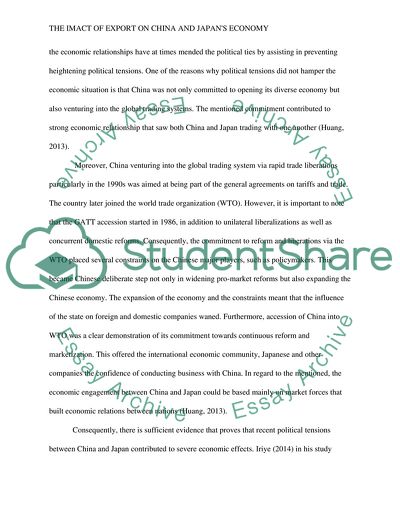Cite this document
(The Impact of Export on China and Japan's Economy Coursework Example | Topics and Well Written Essays - 1500 words, n.d.)
The Impact of Export on China and Japan's Economy Coursework Example | Topics and Well Written Essays - 1500 words. https://studentshare.org/macro-microeconomics/1876650-empirical-research
The Impact of Export on China and Japan's Economy Coursework Example | Topics and Well Written Essays - 1500 words. https://studentshare.org/macro-microeconomics/1876650-empirical-research
(The Impact of Export on China and Japan'S Economy Coursework Example | Topics and Well Written Essays - 1500 Words)
The Impact of Export on China and Japan'S Economy Coursework Example | Topics and Well Written Essays - 1500 Words. https://studentshare.org/macro-microeconomics/1876650-empirical-research.
The Impact of Export on China and Japan'S Economy Coursework Example | Topics and Well Written Essays - 1500 Words. https://studentshare.org/macro-microeconomics/1876650-empirical-research.
“The Impact of Export on China and Japan'S Economy Coursework Example | Topics and Well Written Essays - 1500 Words”. https://studentshare.org/macro-microeconomics/1876650-empirical-research.


